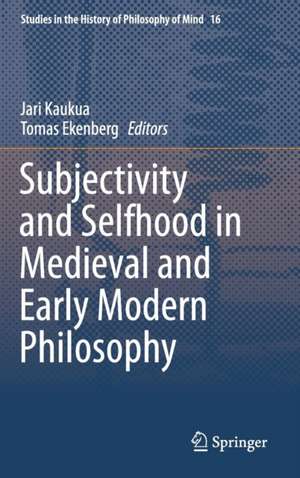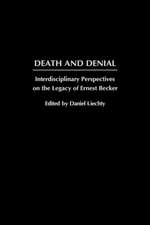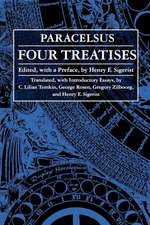Subjectivity and Selfhood in Medieval and Early Modern Philosophy: Studies in the History of Philosophy of Mind, cartea 16
Editat de Jari Kaukua, Tomas Ekenbergen Limba Engleză Hardback – 2 mar 2016
| Toate formatele și edițiile | Preț | Express |
|---|---|---|
| Paperback (1) | 727.31 lei 6-8 săpt. | |
| Springer International Publishing – 7 apr 2018 | 727.31 lei 6-8 săpt. | |
| Hardback (1) | 733.33 lei 6-8 săpt. | |
| Springer International Publishing – 2 mar 2016 | 733.33 lei 6-8 săpt. |
Din seria Studies in the History of Philosophy of Mind
- 20%
 Preț: 689.96 lei
Preț: 689.96 lei - 15%
 Preț: 649.54 lei
Preț: 649.54 lei -
 Preț: 387.75 lei
Preț: 387.75 lei - 24%
 Preț: 1051.80 lei
Preț: 1051.80 lei - 18%
 Preț: 1571.77 lei
Preț: 1571.77 lei - 18%
 Preț: 731.91 lei
Preț: 731.91 lei - 20%
 Preț: 572.08 lei
Preț: 572.08 lei - 15%
 Preț: 653.79 lei
Preț: 653.79 lei - 15%
 Preț: 481.34 lei
Preț: 481.34 lei - 15%
 Preț: 647.92 lei
Preț: 647.92 lei - 15%
 Preț: 582.45 lei
Preț: 582.45 lei - 15%
 Preț: 643.16 lei
Preț: 643.16 lei - 18%
 Preț: 785.42 lei
Preț: 785.42 lei - 15%
 Preț: 651.34 lei
Preț: 651.34 lei - 18%
 Preț: 721.19 lei
Preț: 721.19 lei - 15%
 Preț: 635.80 lei
Preț: 635.80 lei -
 Preț: 448.58 lei
Preț: 448.58 lei - 15%
 Preț: 695.70 lei
Preț: 695.70 lei -
 Preț: 383.93 lei
Preț: 383.93 lei - 18%
 Preț: 727.66 lei
Preț: 727.66 lei - 18%
 Preț: 720.53 lei
Preț: 720.53 lei - 18%
 Preț: 952.89 lei
Preț: 952.89 lei - 15%
 Preț: 695.85 lei
Preț: 695.85 lei - 18%
 Preț: 1390.26 lei
Preț: 1390.26 lei - 18%
 Preț: 953.35 lei
Preț: 953.35 lei - 18%
 Preț: 944.99 lei
Preț: 944.99 lei
Preț: 733.33 lei
Preț vechi: 894.31 lei
-18% Nou
Puncte Express: 1100
Preț estimativ în valută:
140.32€ • 146.90$ • 116.11£
140.32€ • 146.90$ • 116.11£
Carte tipărită la comandă
Livrare economică 05-19 aprilie
Preluare comenzi: 021 569.72.76
Specificații
ISBN-13: 9783319269122
ISBN-10: 3319269127
Pagini: 295
Ilustrații: IX, 295 p.
Dimensiuni: 155 x 235 x 19 mm
Greutate: 0.61 kg
Ediția:1st ed. 2016
Editura: Springer International Publishing
Colecția Springer
Seria Studies in the History of Philosophy of Mind
Locul publicării:Cham, Switzerland
ISBN-10: 3319269127
Pagini: 295
Ilustrații: IX, 295 p.
Dimensiuni: 155 x 235 x 19 mm
Greutate: 0.61 kg
Ediția:1st ed. 2016
Editura: Springer International Publishing
Colecția Springer
Seria Studies in the History of Philosophy of Mind
Locul publicării:Cham, Switzerland
Cuprins
Introduction; Jari Kaukua and Tomas Ekenberg.- Chapter 1. Augustine on Second-Order Desires and Passions; Tomas Ekenberg.- Chapter 2. The Augustinian cogito and Materialist Theories of Mind; Tamer Nawar.- Chapter 3. Losing Oneself, Finding Oneself: Perspectives from Islamic Intellectual History; Taneli Kukkonen.- Chapter 4. Avicenna on Non-Conceptual Content and Self-Awareness in Non-Human Animals; Luis Xavier López-Farjeat.- Chapter 5. Self, Agent, Soul: Abû al-Barakât al-Baghdâdî's Critical Reception of Avicennian Psychology; Jari Kaukua.- Chapter 6. 'Causa sui': Awareness and Choice in the Constitution of Self; Calvin Normore.- Chapter 7. Aping Logic? Albert the Great on Animal Mind and Action; Jörg Alejandro Tellkamp.- Chapter 8. Locating Human Subjectivity in Aquinas: Self-Awareness, Freedom, and the Reflexivity of Incorporeal Acts; Therese Scarpelli Cory.- Chapter 9. Subjective Experience and Self-Knowledge: Chatton's Approach and its Problems; Sonja Schierbaum.- Chapter 10. Self-Awareness and Perception in Late Medieval Epistemology; José Filipe Silva.- Chapter 11. Beasts, Human Beings, or Gods: Human Subjectivity in Medieval Political Philosophy; Juhana Toivanen.- Chapter 12. Martin Luther's Early Theological Anthropology: From Parts of the Soul to the Human Person; Ilmari Karimies.- Chapter 13. A Bodily Sense of Self in Descartes and Malebranche; Colin Chamberlain.- Chapter 14. A View from Nowhere? The Place of Subjectivity in Spinoza's Rationalism; Julia Borcherding.- Chapter 15. Reflection and Rationality in Leibniz; Sebastian Bender.- Chapter 16. Hume's Self and the Appendix; Udo Thiel.
Recenzii
“This is a collection of essays presented at a conference held at the University of Uppsala in August 2012 entitled ‘Subjectivity, Selfhood, and Agency in the Arabic and Latin Traditions.’ … Any scholar of medieval or early modern epistemology or philosophy of mind would be well-served by a careful reading of these papers.” (Eric Hagedorn, Notre Dame Philosophical Reviews, ndpr.nd.edu, September, 2016)
Notă biografică
Jari Kaukua is an Academy of Finland research fellow at the University of Jyväskylä. An expert in classical and post-classical Arabic philosophy, he is the author of Self-Awareness in Islamic Philosophy (Cambridge University Press), and has published a number of articles in leading journals of medieval philosophy, including Vivarium and Documenti e studi sulla tradizione filosofica medievale. Tomas Ekenberg is a docent of theoretical philosophy at Uppsala University, Sweden. He specializes in early medieval metaphysics, theories of action and philosophical psychology and their origins in late ancient thought. He has published several articles about Anselm of Canterbury and Augustine of Hippo. Among his recent publications is a contribution to the anthology Augustine's Confessions: Philosophy in Autobiography, edited by William Mann (OUP 2014).
Textul de pe ultima copertă
This book is a collection of studies on topics related to subjectivity and selfhood in medieval and early modern philosophy. The individual contributions approach the theme from a number of angles varying from cognitive and moral psychology to metaphysics and epistemology. Instead of a complete overview on the historical period, the book provides detailed glimpses into some of the most important figures of the period, such as Augustine, Avicenna, Aquinas, Descartes, Spinoza, Leibniz and Hume. The questions addressed include the ethical problems of the location of one's true self and the proper distribution of labour between desire, passion and reason, and the psychological tasks of accounting for subjective experience and self-knowledge and determining different types of self-awareness.
Caracteristici
Offers a new perspective on historical discussions of human subjectivity and agency Bridges the gap between medieval and early modern philosophy Combines discussions from both the Latin and the Arabic traditions















